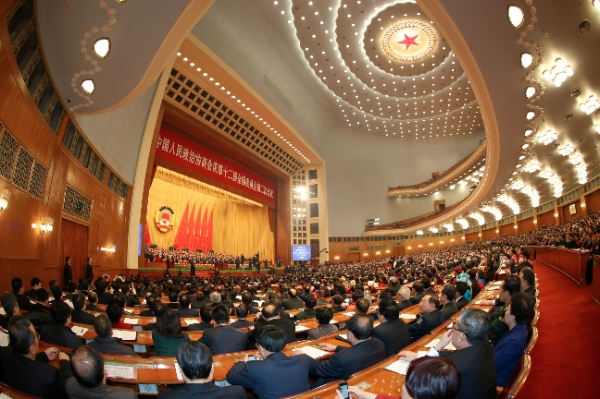

Follow us on:  
|


The fifth session of the 12th National Committee of the Chinese People’s Political Consultative Conference (CPPCC), the national advisory body, opens at the Great Hall of the People in Beijing, capital of China, March 3, 2016 [Xinhua]
President Xi Jinping, Premier Li Keqiang, and other senior leaders such as Zhang Dejiang, Liu Yunshan, Wang Qishan and Zhang Gaoli attended the opening ceremony.
Central on the agenda of the annual session – one of the most significant political conferences – will be means to consolidate party power and unity, root out corruption and continue economic growth.
President Xi has been very aggressive in pursuit of party members who are involved in corruption on a personal and state level.
According to media reports, hundreds of thousands of state officials have been arrested on corruption charges in the past several years.
In tandem with Xi’s anti-graft campaign, stringent adherence may require doling out severe punishments to officials who are considered corrupt and thereby sending a message of strict discipline.
A Pew Research survey conducted in early October found that nearly 50 per cent of the Chinese public believe corrupt officials constitute a very big problem for the country. Eighty-three per cent said that corruption was a moderately big problem.
The economy will also figure prominently in the 10-day congress. Chinese authorities have struggled in recent years to reshift priorities away from the traditional bastions of the economy – manufacturing, exports and government spending – to focus on domestic consumption and services.
They have introduced corrective measures to reform the economy but this has been challenged by GDP growth, which has fallen from double digits to a range of 6.5 to 7 per cent, the slowest rate in 25 years.
The target growth rate is likely to remain unchanged.
The BRICS Post with inputs from Agencies